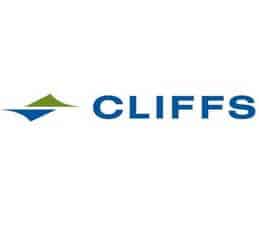
I own Cliffs Natural Resources’ 10/1/2040 maturing 6.25% senior unsecured note (CUSIP 18683KAC5), which I purchased at a discount to par in 2011 when the stock was trading in the $70s. Since that time, the bond has traded above my purchase price, and it has traded below my purchase price. All the while, I’ve collected the 6.25% coupon and not worried about the mark-to-market movements of a bond that will mature at par (assuming no default). Additionally, I didn’t subject myself to the roller coaster ride in the stock. There are, in my opinion, many advantages to owning bonds in a portfolio. Predictability of cash flow and protection of principal are two such advantages.
One might think that such a massive decline in the stock (more than 60% off the 52-week high) would bring with it crashing bond prices. While the company’s bonds have declined in price from their 2012 peaks, the intermediate term bonds are still trading over par, and the 2040 maturing note actually traded in a higher daily range post announcement than it did immediately before the dividend cut announcement. In other words, the long-term bond’s price went up on the news and is now trading in the upper 90s (cents on the dollar). And that makes sense. More prudent cash management is good for bondholders. Moody’s, which currently has a negative outlook on the company’s Baa3-rated senior unsecured debt, noted that the while the dividend cut and share offerings currently have no impact on the negative outlook at this time, they do provide “support to the rating.”
Cliffs Natural Resources investors who consider themselves so-called “dividend investors” should be aware that dividends are not always as sacred as they are made out to be. Dividends can be cut. Additionally, stock prices do not always go up. They can go down. If you are a “dividend investor” who gets hit with the double whammy of a cut dividend and a falling stock price, it may throw a wrench in your portfolio planning that is not that easy to overcome. Cliffs Natural Resources isn’t the first company to ever cut its dividend, and it won’t be the last. Exelon shareholders also recently learned this lesson when the company cut its dividend by nearly 41%. And Exelon belongs to the Utilities sector, a sector in which plenty of investors park their money with the belief that the dividends are safe. There are plenty of other examples of companies that have cut dividends in recent years. Some of these examples can be found in Chapter 3 of my book, The 5 Fundamentals of Building a Retirement Portfolio.
I don’t want to leave investors with the impression that I dislike dividend-paying stocks. In fact, I own many dividend-paying stocks in my portfolio. But it is important to point out that dividends do not always provide as predictable and secure of an income stream as many investors believe. There are a whole host of companies in which investors with longer-term time horizons would be better off foregoing the dividends from the stock and instead owning the bonds. Cliffs Natural Resources just provided us with a recent example of why it is one such company.
Read more from The Financial Lexicon here.
Income Investing Insider Newsletter
The 5 Fundamentals of Building a Retirement Portfolio
Options Strategies Every Investor Should Know
Trusted & Regulated Stock & CFD Brokers
What we like
- 0% Fees on Stocks
- 5000+ Stocks, ETFs and other Markets
- Accepts Paypal Deposits
Min Deposit
$200
Charge per Trade
Zero Commission on real stocks
64 traders signed up today
Visit Now67% of retail investor accounts lose money when trading CFDs with this provider. You should consider whether you can afford to take the high risk of losing your money.
Available Assets
- Total Number of Stocks & Shares5000+
- US Stocks
- German Stocks
- UK Stocks
- European
- ETF Stocks
- IPO
- Funds
- Bonds
- Options
- Futures
- CFDs
- Crypto
Charge per Trade
- FTSE 100 Zero Commission
- NASDAQ Zero Commission
- DAX Zero Commission
- Facebook Zero Commission
- Alphabet Zero Commission
- Tesla Zero Commission
- Apple Zero Commission
- Microsoft Zero Commission
Deposit Method
- Wire Transfer
- Credit Cards
- Bank Account
- Paypall
- Skrill
- Neteller
What we like
- Sign up today and get $5 free
- Fractals Available
- Paypal Available
Min Deposit
$0
Charge per Trade
$1 to $9 PCM
Visit Now
Investing in financial markets carries risk, you have the potential to lose your total investment.
Available Assets
- Total Number of Shares999
- US Stocks
- German Stocks
- UK Stocks
- European Stocks
- EFTs
- IPOs
- Funds
- Bonds
- Options
- Futures
- CFDs
- Crypto
Charge per Trade
- FTSE 100 $1 - $9 per month
- NASDAQ $1 - $9 per month
- DAX $1 - $9 per month
- Facebook $1 - $9 per month
- Alphabet $1 - $9 per month
- Telsa $1 - $9 per month
- Apple $1 - $9 per month
- Microsoft $1 - $9 per month
Deposit Method
- Wire Transfer
- Credit Cards
- Bank Account



